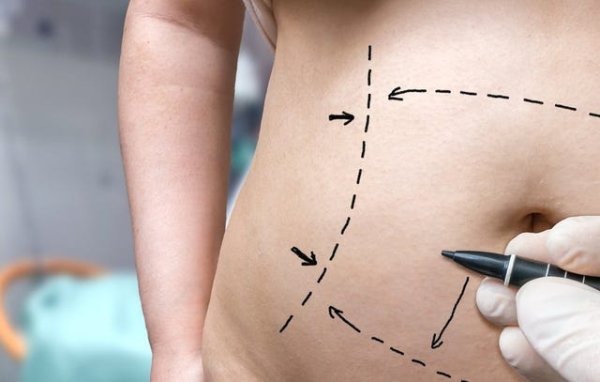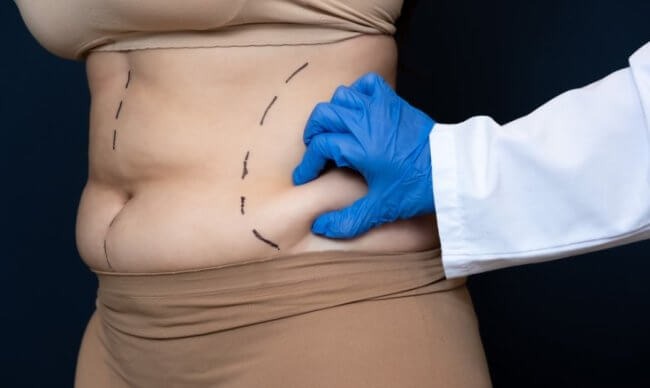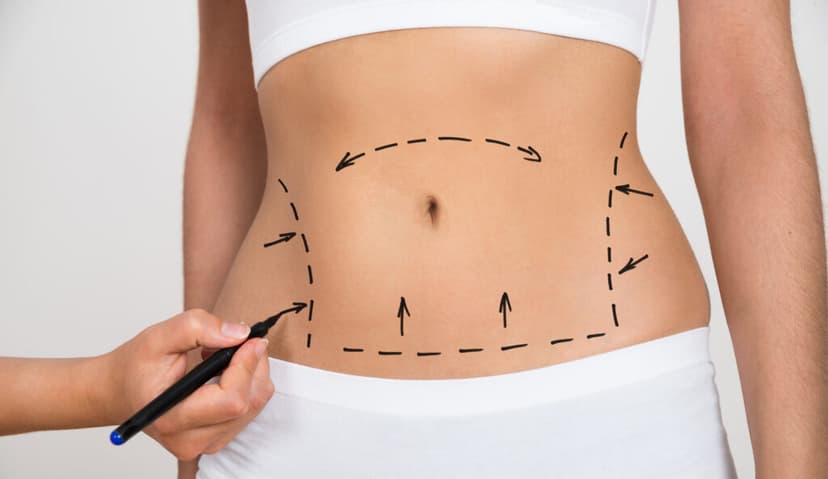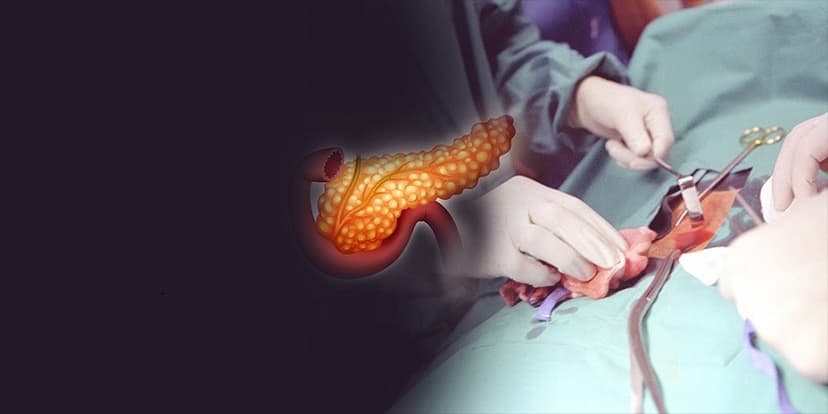Contents
Tummy Tuck in Turkey is one of the most preferred plastic surgery operations by international patients who go abroad for plastic surgery.
Abdominoplasty, known as Tummy Tuck in Turkey, is a cosmetic surgical procedure to improve the appearance of the abdomen. It involves removing excess skin and fat from the middle and lower abdomen and tightening the muscles.
While Tummy Tuck surgery can be quite expensive in many countries, Turkey offers a cost advantage with 50%-60% lower prices compared to European countries. The cost of Tummy Tuck surgery in Turkey is €3,700.
In this comprehensive guide, we will examine the details of Tummy Tuck surgery in Turkey. By the end of this article, you will have a clear understanding of the cost of Tummy Tuck surgery in Turkey, comparison with prices in the UK and other European countries, the procedure itself, and the best clinics in Turkey for Tummy Tuck surgery.
A-Medical health tourism company, which specializes in medical tourism and provides its patients with the opportunity to find the medical service they seek abroad, also offers various discounts and opportunities to those who want to have Tummy Tuck surgery in Turkey. By entrusting your medical tourism process to us, you can gain a high-level and comfortable health tourism experience.
Tummy tuck surgery is commonly sought by individuals who have excess abdominal skin and fat that has not responded well to diet and exercise. This can be due to factors such as pregnancy, significant weight loss, or natural aging. The procedure can help create a smoother, flatter, and more toned abdominal profile.
Tummy Tuck surgery is an excellent choice for anyone who wants a beautifully sculpted abdomen. You can choose tummy tuck surgery to gain an image that cannot be achieved with additional measures such as exercise, diet, and liposuction.
One of the remarkable aspects of Tummy Tuck surgery in Turkey is its affordability and high quality. The cost of Tummy Tuck surgery in Turkey starts from €3,700. The procedure is performed in clinics with a proven track record of success in plastic surgery, with experienced doctors leading the way.
You can get the most detailed information about Tummy Tuck surgery in Turkey by reading our article.
Key Facts You Should Know About Tummy Tuck Surgery

We have a lot to talk about Tummy Tuck surgery in Turkey. We have given more information about general procedure, pricing, best clinics, and general procedure in our content. But for those who don't have the time or don't want to read the full content, here's the TL;DR:
Turkey offers a highly appealing option for individuals in search of affordable plastic surgery, with prices that are about 50%-60% lower compared to other countries. Specifically, the cost of Tummy Tuck surgery in Turkey starts from €3,700, providing a budget-friendly opportunity for those considering this procedure.
- Tummy tuck surgery improves the abdomen's appearance by removing excess skin and fat, toning muscles, and reshaping the belly button.
- Turkey is a cost-effective choice for plastic surgery, with prices 50%-60% lower than other countries. Tummy Tuck surgery costs starts from €3,700 in Turkey.
- Tummy Tuck surgery in Turkey is performed by trained and experienced doctors trained in America and Europe.
- When it comes to Tummy Tuck surgeries, Turkey boasts advanced clinics that have earned a reputation for their high success rates in the field of plastic surgery. Some notable examples include Turkeyana Clinic and Liv Hospital.
- As A-Medical, we manage all the processes of candidates who want to have Tummy Tuck surgery in Turkey, offer our patients the opportunity to benefit from various discounts and campaigns, and provide our patients with the best possible medical tourism experience.
- Mini Tummy Tuck, 360 Tummy Tuck and Laser Tummy Tuck surgeries are also performed as an alternative to Full Tummy Tuck surgery in Turkey.
Your 7-Day Tummy Tuck Journey in Turkey: A Step-by-Step Timeline
For international patients, a stay of 7 nights in Turkey is typically sufficient to complete the surgery, undergo necessary checks, and receive "fit-to-fly" clearance. Here is what your medical journey with A-Medical looks like, day by day:
- Day 1: Arrival in Istanbul Upon landing, you will be welcomed by our VIP transfer team and driven to your hotel. We recommend spending this day resting, hydrating, and settling in to prepare your body for the process.
- Day 2: Consultation & Pre-Op Tests You will meet your plastic surgeon for a detailed physical examination and consultation. Comprehensive blood tests and, if necessary, an ECG will be performed to ensure you are perfectly safe for anesthesia.
- Day 3: The Surgery Day You will be admitted to the hospital 2-3 hours before the scheduled time. The Tummy Tuck procedure is performed under general anesthesia. Your hospitalization begins, and medical staff will monitor you closely overnight.
- Day 4: Hospital Stay & Initial Recovery Depending on your surgeon’s recommendation and the extent of the surgery, you may stay one more night in the hospital or be discharged to your hotel. If discharged, our team will transfer you comfortably to your recovery hotel.
- Day 5: Recovery at Hotel You will rest at your hotel. It is crucial to wear your medical compression corset constantly to reduce swelling. Short, light walks every 2-3 hours are encouraged to promote blood circulation.
- Day 6: Follow-Up & Relaxing Swelling may peak but will start to stabilize. You can enjoy light activities in your hotel room. If you have drains, they may be removed today or tomorrow depending on the fluid output.
- Day 7: Final Check-Up & Fit-to-Fly You will have your final consultation with your surgeon. Once the doctor confirms your healing is on track, you will receive your "fit-to-fly" clearance and can return home safely.
After Returning Home:
- Return to Work: You can typically resume desk jobs within 10-14 days.
- Physical Activity: Heavy lifting and strenuous exercise should be avoided for 4-6 weeks.
- Flight Advice: For flights longer than 4 hours, we recommend wearing compression stockings, drinking plenty of water, and taking short walks in the cabin.
Global Price Comparison: Tummy Tuck in Turkey vs. UK, USA, Canada, & Europe
One of the most confusing aspects of researching plastic surgery prices abroad is understanding what is actually included in the quote.
The "All-Inclusive" Advantage in Turkey:
In countries like the UK, USA, and Australia, the quoted price often follows an "unbundled" model. As noted by the American Society of Plastic Surgeons (ASPS) and PHIN (UK), the advertised fee typically covers only the surgeon's time. You are often expected to pay separately for anesthesia, operating room facilities, pre-op tests, and post-op medication.
In contrast, Tummy Tuck packages in Turkey are almost always "all-inclusive." The price you see typically includes the surgeon’s fee, anesthesia, hospital stay, VIP transfers, and sometimes even hotel accommodation.
Here is a breakdown of estimated costs for Tummy Tuck procedures across major countries compared to Turkey:
1. Mini Tummy Tuck Costs
- Turkey (All-Inclusive): €2,800 - €3,500
- United Kingdom: £4,000 - £5,500 (approx. €4,700+)
- United States: $6,000 - $8,500 (Surgeon fee only)
- Ireland: €5,500 - €7,000
- Canada: C$7,000 - C$12,000
- Australia: A$8,000 - A$14,000
2. Full Tummy Tuck Costs (Standard)
- Turkey (All-Inclusive): €3,300 - €4,500
- United Kingdom: £5,500 - £8,500 (approx. €6,500 - €10,000)
- United States: $8,000 - $18,000 (Surgeon fee only)
- Germany: €7,500 - €11,000
- Canada: C$9,000 - C$24,000
- Australia: A$10,000 - A$20,000
3. Extended or Fleur-de-Lis Tummy Tuck Costs
- Turkey (All-Inclusive): €3,700 - €5,000
- United Kingdom: £7,500 - £11,000 (approx. €9,000+)
- United States: $12,000 - $22,000 (Surgeon fee only)
- Ireland: €9,000 - €14,000
- Canada: C$15,000 - C$28,000
- Australia: A$15,000 - A$25,000
> Note: The prices listed for Western countries are estimates and often exclude hospital and anesthesia fees. The prices for Turkey usually cover the entire medical package.
Why Should You Undergo Abdominoplasty (Tummy Tuck) in Turkey?

The best country for your tummy tuck surgery is Turkey. The main reasons why Turkey is the best location for Tummy Tuck surgery are (1) low costs, (2) experienced surgeons, (3) clinics with high success rate and quality. Especially in Istanbul, Tummy Tuck surgery is performed with the highest quality.
Just like all surgeries, various technologies are used to make Tummy Tuck surgery more comfortable. Turkish clinics have technologies that will make your Tummy Tuck surgery most comfortable. It is possible to achieve shorter recovery time, less scarring and more successful results with Tummy Tuck surgery to be performed with robotic surgery or laser.
Apart from that, Turkey has earned the title of being the best tummy tuck surgery location thanks to its experienced doctors. Most of the surgeons in Turkey have been trained in various countries of the world, and many of them have received accreditation from well-known institutions such as the British Plastic Surgery Association. Many surgeons in Turkey are more experienced and successful than their European counterparts.
Another reason to choose Turkey for your Tummy Tuck surgery is the extra services. Thanks to A-Medical, if you have Tummy Tuck surgery in Turkey, you will benefit from travel planning, accommodation support, finding a clinic, taking reservations, free transfer to the hospital, free translator support, visa support, discounts and many more extra services.
All Details About Tummy Tuck Surgical Procedure in Turkey
Tummy Tuck surgery is the best alternative for all men and women who are overwhelmed by excess abdominal fat. Tummy Tuck surgery may be a last resort, especially if you cannot get rid of abdominal fat despite diet, exercise, and other efforts.
While excess fat can be removed after pregnancy with Tummy Tuck surgery, you can also lose weight caused by mild obesity. But if you have severe obesity, Tummy Tuck surgery will not be the ideal solution for you. You may consider having weight loss surgery instead.
In Turkey, Tummy Tuck surgery generally falls into two main categories: the 'Mini' and the 'Full' procedure. The choice depends on the amount of excess fat that your surgeon decides to remove from your body. If your surgeon notices that there is excess fat in areas like your abdomen, back, hips, and arms, they might recommend a 360 Tummy Tuck to address all those areas.
Tummy Tuck surgery is a significant and important procedure that should not be mistaken for bariatric surgery. If you're thinking about getting a Tummy Tuck, it's crucial to grasp the root cause of your excess weight and explore alternative options like exercise and a healthy diet. That being said, it's worth noting that Tummy Tuck surgeries performed at reputable clinics by skilled surgeons have a high success rate. Their expertise and dedication play a significant role in achieving positive outcomes.
Best Candidates for Abdominoplasty
The right candidates for Tummy Tuck are those who have not been able to get rid of belly fat with diet and exercise before. Also, if you are considering obtaining abdominoplasty surgery, there are eligibility criteria you must meet. These:
- If you are considering pregnancy, it would be better to have your Tummy Tuck surgery after pregnancy.
- People with excess fat in the abdomen or lower abdomen are suitable for abdominoplasty surgery.
- Candidates must be able to handle anesthesia and must not have any allergic reaction to anesthesia.
- In order to get positive results from the surgery, you should not have any nutritional or tissue problems.
- The total obesity rate should not be higher than expected, you should not reach the level of morbid obesity.
What Are The Risks Related To Tummy Tuck Surgery?
Although tummy tuck surgery is generally considered a successful procedure, it does come with risks, like any other surgery. These risks can vary, ranging from manageable pain that lasts a few days to more significant risks. While some patients may experience prolonged pain for months, others may not be at risk at all.
It is important to note that the success and safety of tummy tuck surgery greatly depend on the expertise of the performing doctors. When carried out by specialized doctors, it tends to yield positive outcomes.
Here are some risks associated with tummy tuck surgery:
- Tissue damage or necrosis
- Changes in skin sensation
- Formation of fluid pockets deep within the skin (seroma)
- Slower recovery process
- Swelling in the treated area
- Numbness in the treated area
- Permanent scarring
- Unsatisfactory results
- Bleeding
- Infection
If you are considering undergoing tummy tuck surgery in Turkey, it's advisable to follow the recommendations below to minimize potential risks:
- Quit smoking
- Maintain a stable weight
Preparation Before Tummy Tuck In Turkey
Before having Tummy Tuck surgery in Turkey, you should make an appointment with your doctor and start pre-operative preparations. Since abdominoplasty is a surgical procedure, it requires additional preparation.
- At the first appointment, your doctor will ask about your medical history and the medications you regularly use.
- The doctor will ask you not to take some of your medications to prevent blood clots and blood loss during surgery.
- Your doctor will call you for a physical exam to identify the right areas for abdominoplasty.
- You will be informed about all the effects, side effects and expected results related to the procedure.
- You will be asked to keep your weight stable until the day of surgery.
- You will have to give up your habits such as smoking and alcohol until the day of surgery.
Types of Tummy Tuck Surgery in Turkey

Full Tummy Tuck
Full Tummy Tuck is the standard abdominoplasty procedure. The procedure is used for those who want to compress both the upper and lower region at the same time. Full Tummy Tuck is a procedure performed under general anesthesia.
Mini Tummy Tuck
A mini tummy tuck is only recommended for patients who want to tighten the lower part of the abdomen below the belly button. Compared to the Full Tummy Tuck procedure, fewer incisions are made in the Mini Tummy Tuck. This method has a faster recovery time than the standard procedure. Mini Tummy Tuck is performed under general anesthesia and the operation takes an average of 1-2 hours.
360 Tummy Tuck
360 Tummy Tuck is more complex and more invasive than a standard tummy tuck. It covers the removal of excess weight collected in the upper and lower abdomen, waist and hips, and in some cases even in the arm area. The surgeon makes two incisions, one across the lower abdomen and navel, and removes excess skin and fat. 360 tummy tuck is an operation performed under general anesthesia and completed in an average of 1-2 hours.
Laser Tummy Tuck
A laser tummy tuck is a non-surgical method to remove unwanted fat and loose skin from the body. Instead of traditional surgery, this procedure utilizes lasers. Here's how it works: small laser fibers are carefully inserted beneath the skin. These fibers emit heat once in place, effectively breaking down fat cells without causing harm to the surrounding tissue. This innovative approach enables patients to eliminate excess fat and achieve a more contoured appearance.
Tummy Tuck vs. Liposuction: Which One Do You Need?
One of the most common dilemmas for international patients seeking body contouring is choosing between a Tummy Tuck (Abdominoplasty) and Liposuction.
Understanding the difference is crucial for setting realistic expectations and achieving the body profile you desire.
Liposuction: Focusing on Fat Liposuction is strictly a fat-removal procedure. It is designed to suction out stubborn fat deposits from areas like the abdomen, flanks (love handles), and back.
- Best for: Patients with good skin elasticity who have excess fat but no sagging skin or muscle separation.
- Limitation: Liposuction does not tighten loose skin. If you have sagging skin, liposuction alone may worsen the appearance by leaving the skin looking deflated.
Tummy Tuck: Focusing on Skin and Muscles A Tummy Tuck is a reconstructive procedure. While it removes some fat, its primary goal is to remove excess, sagging skin and tighten the underlying abdominal muscles (rectus abdominis), which often separate during pregnancy (diastasis recti).
- Best for: Patients with loose, hanging skin, stretch marks, or weakened abdominal muscles due to pregnancy or significant weight loss.
Which one is right for you? If your main concern is "pinchable" fat but your skin is tight, Liposuction may be enough. However, if you have a "skin apron" hanging down or your belly protrudes due to muscle weakness, a Tummy Tuck is the necessary solution.
What to Expect After Tummy Tuck Surgery
- Once the surgery is completed, the medical team will closely monitor your progress in the hospital for a few days.
- Following the surgery, it's important to have someone available to assist you during your initial days at home.
- Taking a shower after the surgery may require some assistance, so it's best to have someone help you with that.
- Your doctor will likely prescribe painkillers and antibiotics to help alleviate any potential discomfort you may experience after the surgery.
- It's important to refrain from consuming alcohol and smoking for a few months after the surgery to promote a healthy recovery.
- Engaging in light physical activities will be encouraged after the surgery to aid in your recovery process.
- It is advisable to avoid strenuous physical activities, exercises, and driving for approximately one to one and a half months following the surgery.
Tummy Tuck Recovery
When your Tummy Tuck surgery is over in Turkey, you will spend one night under the supervision of the healthcare team. After the operation, you will need to stay under observation for 1 night in order to avoid any emergency.
It is normal to feel pain in various parts of your body after the procedure. Your doctor will recommend painkillers to reduce these pains.
To speed up recovery after Tummy Tuck surgery:
- Do not avoid taking painkillers when you feel pain.
- Wear an abdominal compression corset for 1.5 months after surgery.
- Do not lift weights for 1.5 months after surgery.
- Avoid smoking and alcohol consumption.
- Sleep on your back.
- Avoid all activities that will affect the incision site for 2 months after surgery.
- Stick to your diet plan.
How Much Is a Tummy Tuck in Turkey?
Tummy Tuck operation abroad is costly in many countries. Based on information provided by the American Society of Plastic Surgeons, the cost of abdominoplasty in the United States can vary between $7,000 and $18,000. On the other hand, in the United Kingdom, the cost typically falls within the range of £4,500 to £6,000.
The cost is influenced by the doctor's expertise, the location of the clinic and the country chosen. Tummy Tuck surgery in Turkey is 50%-60% cheaper compared to Europe.
If you are asking how much does Abdominoplasty cost in Turkey?, there is a price information we can give you for sure.
The cost of Tummy Tuck surgery in Turkey starts from €3,700.
Contact us today via WhatsApp for a free intake and get your personalized plan immediately.
How Much Does A Abdominoplasty Cost?
The price of Abdominoplasty surgery differs across clinics and countries, influenced by various factors such as the clinic's reputation, its location, and the expertise of the surgeon. In the United States, the average cost of Abdominoplasty surgery falls within the range of $12,000 to $18,000. In the United Kingdom, it typically ranges from £4,550 to £6,000. In Turkey, the cost of Abdominoplasty surgery is approximately €3,700.
The prices in the table have been acquired from clinics that have partnered with A-Medical.
Tummy Tuck Cost in Turkey 2026
The cost of Tummy Tuck surgery in Turkey depends on the clinic chosen, the location of the clinic, the expertise of the doctor and the size of the procedure. If the procedure will be Full Tummy Tuck, the cost will start from €3,700.
You can expect to pay 1/3 the price in the United States, Europe and other countries for Tummy Tuck surgery in Turkey.
The average cost of Tummy Tuck surgery in the United States is the minimum cost of $10,000. Tummy Tuck surgery costs in the UK start at £4,500, which is the lowest limit. In Turkey, you can get high quality Tummy Tuck surgery for €3,700 at a much lower cost than in other countries. Tummy Tuck surgery in Turkey is performed in hospitals with ISO and JCI accreditation, with the participation of the highest level of specialist surgeons.
How Much Can I Save From Tummy Tuck Surgery in Turkey Compared to Prices in Other Countries?
It should be said that Tummy Tuck surgery is a purely elective procedure and is not included in any health insurance. It is important to choose a country that finds the balance between cost and quality for this Tummy Tuck surgery.
Turkey is the most affordable country for Tummy Tuck surgery. Compared to many countries, the cost of Tummy Tuck surgery in Turkey is 50%-60% cheaper.
See how much more affordable treatment is in Turkey compared to abroad:
- On average, Tummy Tuck surgery in the UK costs: £4,500 - £8,500
- On average, Tummy Tuck surgery in Turkey costs: £2,300-£3,500
Is Turkey Safe for Tummy Tuck Surgery?
Tummy Tuck surgery, also known as Abdominoplasty, is considered a relatively safe and straightforward procedure within the realm of plastic surgery. However, it's crucial to emphasize that the outcome of this surgery heavily relies on the choice of clinic and doctor. At A-Medical, we take great care in recommending doctors and clinics that meet our stringent criteria and have a proven track record of success. Therefore, when you opt for Tummy Tuck surgery in Turkey through A-Medical, you can rest assured knowing that there is minimal risk involved.
Why Book Your Tummy Tuck in Turkey with A-Medical?
A-Medical has more than 7 years of experience in the medical tourism industry. In recent years, we have helped hundreds of patients obtain reliable treatment abroad.
Our background, experience, and partnerships enable us to offer various special offers and facilities to female candidates who want to have Tummy Tuck surgery in Turkey.
When booking with A-Medical, you also ensure that:
- We have some fantastic deals on treatment packages and accommodation that will make your medical trip even more affordable.
- When you make a booking, there are no upfront charges.
- We provide a complimentary translator and transfer service to make your experience smoother.
- Our team will assist you in connecting with the clinics and making reservations.
- You'll also receive free customer support around the clock, both before, during, and after your treatment.
Top Tummy Tuck Clinics and Hospitals in Turkey
When choosing to undergo Tummy Tuck surgery in Turkey, the quality of the hospital and the expertise of the surgeon are paramount. As A-Medical, we partner exclusively with JCI-accredited, world-class hospitals and renowned clinics to ensure the highest safety and satisfaction for our patients.
Here are the top-rated medical institutions in our network where you can receive high-quality Tummy Tuck surgery:
- Turkeyana Clinic
- Memorial Hospital
- Liv Hospital
- Medipol Mega University Hospital
- Florence Nightingale Hospitals
- Anadolu Medical Center
- Acibadem Healthcare Group
- Medical Park Hospitals
- Hisar Intercontinental Hospital
- Lokman Hekim İstanbul
How to Get in Touch with A-Medical?
Contact us today via WhatsApp for a free intake and get your personalized plan immediately.
Frequently Asked Questions (FAQ)
Is Tummy Tuck a weight loss procedure?
No, Tummy Tuck (Abdominoplasty) is not a weight loss surgery or a treatment for obesity. It is a body contouring procedure designed to remove excess loose skin and stubborn fat deposits that do not respond to diet and exercise. The ideal candidate is close to their ideal weight but struggles with the appearance of their abdomen.
What is the difference between Liposuction and Tummy Tuck?
While both improve body contour, they serve different purposes. Liposuction strictly targets and removes excess fat but does not tighten the skin. Tummy Tuck, on the other hand, removes excess fat and loose skin while also tightening the abdominal muscles. If you have sagging skin, Liposuction alone will not be sufficient; a Tummy Tuck is required.
How long do I need to stay in Turkey for the surgery?
For a Tummy Tuck in Turkey, we generally recommend a stay of 7 nights. This includes the pre-operative tests, the surgery itself (usually 1-2 nights of hospitalization), and a few days of post-operative checks to ensure your recovery is progressing safely before you fly back home.
Will there be a visible scar after the surgery?
Yes, a Tummy Tuck involves an incision, usually running from hip bone to hip bone, which results in a scar. However, experienced surgeons in Turkey place the incision very low on the abdomen (often below the bikini line) so that it can be easily hidden by underwear or swimwear. Over time, the scar will fade significantly.
Can I get pregnant after a Tummy Tuck?
Yes, it is physically safe to get pregnant after a Tummy Tuck. However, doctors strongly advise waiting until you have completed your family before undergoing the procedure. Future pregnancies can stretch the abdominal muscles and skin again, potentially reversing the aesthetic results of your surgery.
Is Tummy Tuck surgery painful?
You will not feel any pain during the surgery as it is performed under general anesthesia. During the recovery period, it is normal to experience some soreness, tightness, and swelling, particularly in the first few days. Your doctor will prescribe pain medication to manage any discomfort and ensure a smooth recovery process.
Can I undergo Tummy Tuck after massive weight loss or gastric sleeve surgery?
Absolutely. In fact, many patients choose Tummy Tuck surgery specifically to address the excess, sagging skin left behind after significant weight loss or bariatric surgeries like Gastric Sleeve. It is the final step to fully enjoying your new body shape.
Does health insurance cover the cost of Tummy Tuck?
Generally, no. Since Tummy Tuck is considered an elective cosmetic procedure, it is typically not covered by health insurance. However, choosing to have your surgery in Turkey with A-Medical allows you to access premium care at a fraction of the cost compared to the UK, USA, or Europe.
What is the best sleeping position after surgery?
For the first few weeks after surgery, you should avoid sleeping flat on your stomach or completely flat on your back. It is recommended to sleep in a slightly bent position (with your upper body raised and knees bent) to reduce tension on your abdominal incisions. Using pillows to prop yourself up is very helpful.




